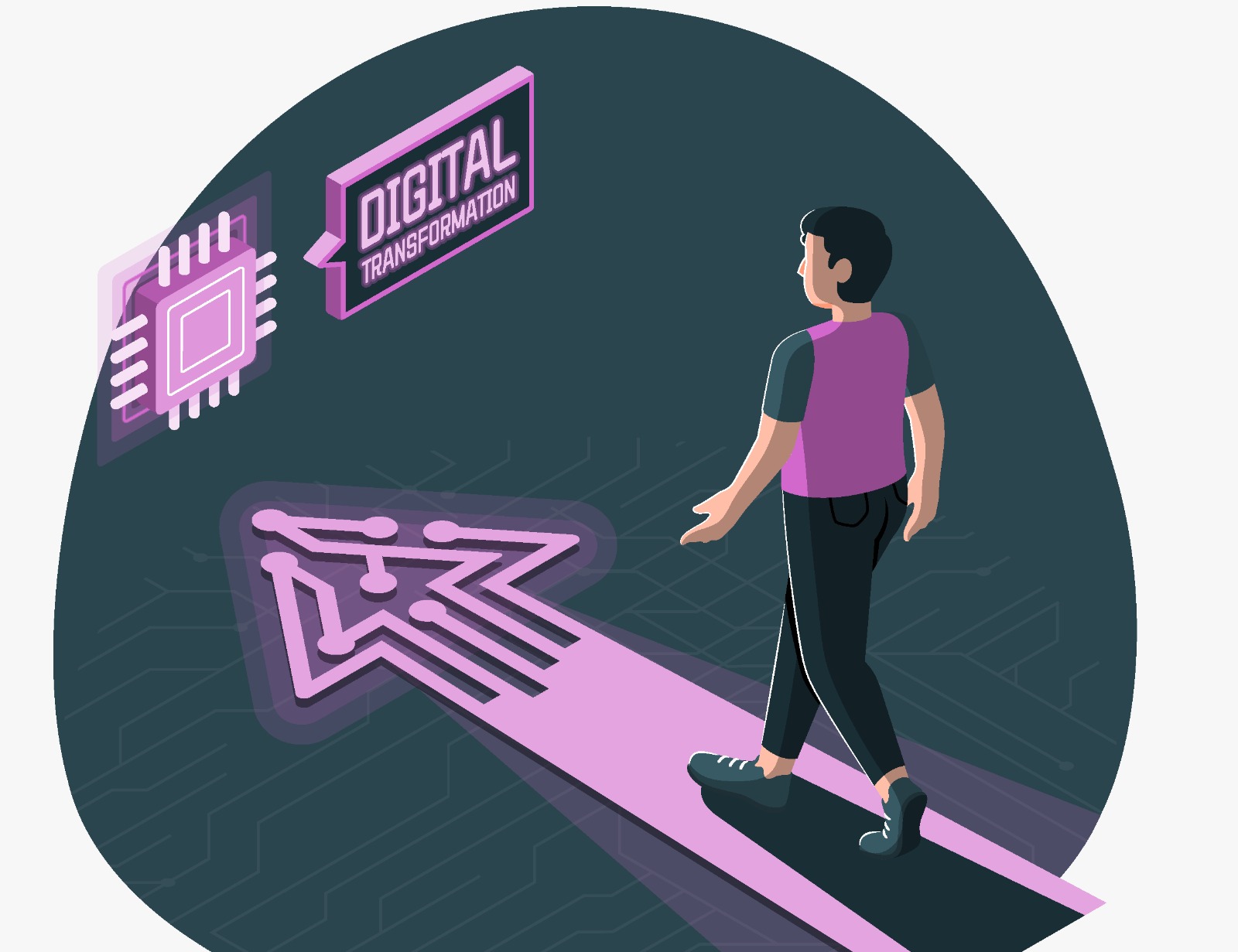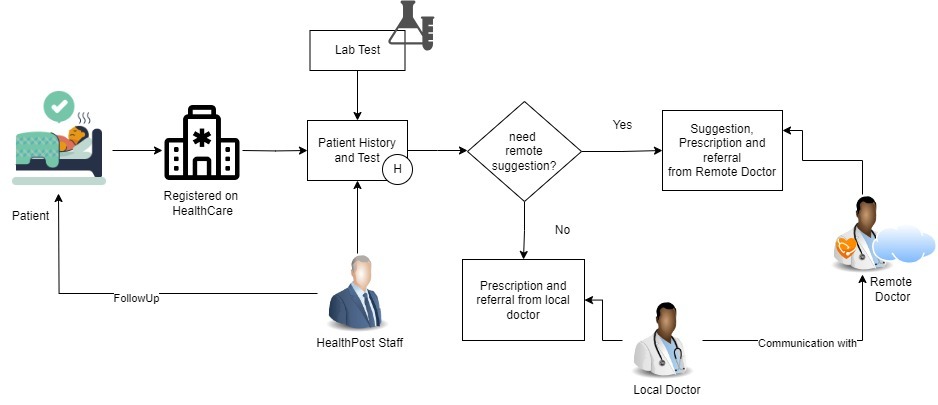Transforming Healthcare The Role of ICT in Remote Healthcare Systems
A comprehensive ICT-enabled remote healthcare system designed to provide accessible, efficient, and continuous medical care and monitoring for patients in remote and rural areas.
Published on : Thu Jul 25 2024

Introduction
In today's rapidly evolving digital landscape, Information and Communication Technology (ICT) plays a pivotal role in transforming various sectors, with healthcare being one of the most impacted. The integration of ICT in remote healthcare systems has revolutionized the way medical services are delivered, especially in areas where access to traditional healthcare facilities is limited. This transformation not only enhances patient care but also bridges the gap between healthcare providers and patients, making healthcare more accessible, efficient, and effective.
Bridging the Gap with Telemedicine
One of the most significant advancements in remote healthcare is telemedicine. Telemedicine utilizes ICT to provide clinical services to patients without the need for an in-person visit. This is particularly beneficial for individuals living in remote or rural areas where healthcare facilities are scarce. Through video conferencing, secure messaging, and mobile health applications, patients can consult with healthcare professionals, receive diagnoses, and even get prescriptions—all from the comfort of their homes.
Telemedicine reduces the need for travel, saving time and resources for both patients and healthcare providers. It also allows for continuous monitoring of chronic conditions through wearable devices and mobile apps, ensuring timely intervention and reducing hospital readmissions.
Enhancing Patient Records and Data Management
ICT has also transformed the management of patient records. Electronic Health Records (EHR) systems have replaced traditional paper records, providing a more organized, accessible, and secure way to store patient information. These systems allow healthcare providers to access a patient's medical history, lab results, and treatment plans with a few clicks, facilitating better decision-making and coordination of care.
Moreover, EHR systems enable seamless sharing of information between different healthcare facilities, ensuring that patients receive consistent and informed care regardless of where they are. This is especially crucial for remote healthcare systems where patients might need to consult with specialists located in different geographical areas.
Remote Monitoring and Wearable Technology
Wearable technology and remote monitoring devices are another crucial aspect of ICT in remote healthcare systems. Devices such as smartwatches, fitness trackers, and medical sensors can monitor a range of health indicators, including heart rate, blood pressure, glucose levels, and more. These devices collect real-time data that can be shared with healthcare providers, allowing for continuous monitoring and early detection of potential health issues.
Remote monitoring is particularly beneficial for managing chronic diseases such as diabetes, hypertension, and heart disease. It enables healthcare providers to track patients' health status remotely and intervene promptly if any abnormalities are detected. This proactive approach to healthcare can significantly improve patient outcomes and reduce the burden on healthcare facilities.
Features of Remote Healthcare Systems
Registration System: Citizens can easily register and create health profiles online, which streamlines the process of accessing medical services.
Appointment Scheduling: Patients can schedule appointments with healthcare providers through web or mobile applications, reducing wait times and improving convenience.
2. Checkups and Consultations: Virtual consultations and routine checkups can be conducted through video calls, ensuring that patients receive timely medical attention.
3. Diagnostic Labs Integration: Remote healthcare systems are integrated with diagnostic labs, allowing patients to receive lab test orders electronically and get results quickly.
4. Expert Advice: Access to specialists and expert advice through remote consultations, making advanced medical expertise available to those in remote areas.
5. Lab Reports and Health Records: Secure electronic access to lab reports and health records, which can be shared easily between patients and healthcare providers.
6. Follow-up and Continuous Care: Automated follow-up scheduling and continuous care plans to ensure ongoing monitoring and management of health conditions.
7. Health Education and Awareness: Online resources and health education programs to inform patients about preventive care, healthy lifestyles, and available medical services.

Improving Health Education and Awareness
ICT also plays a vital role in health education and awareness. Mobile health apps, online portals, and social media platforms are effective tools for disseminating health information and educating the public on various health issues. These platforms can provide information on disease prevention, healthy lifestyles, and available healthcare services, empowering individuals to take charge of their health.
For remote healthcare systems, health education is crucial in promoting preventive care and reducing the incidence of diseases. By leveraging ICT, healthcare providers can reach a broader audience and deliver targeted health messages to communities that might otherwise have limited access to health information.
Overcoming Challenges and Looking Ahead
While ICT has significantly transformed remote healthcare systems, it is not without challenges. Issues such as data privacy and security, digital literacy, and the availability of reliable internet connectivity can hinder the effectiveness of ICT in healthcare. Addressing these challenges requires a collaborative effort between governments, healthcare providers, and technology companies to develop robust and secure ICT solutions.
Looking ahead, the potential of ICT in remote healthcare systems is immense. Advances in artificial intelligence, machine learning, and big data analytics are set to further revolutionize healthcare delivery. These technologies can provide deeper insights into patient health, predict disease outbreaks, and personalize treatment plans, ultimately leading to better health outcomes and a more efficient healthcare system.
ICT has the power to transform remote healthcare systems by enhancing accessibility, improving patient care, and fostering better health outcomes. As technology continues to evolve, the integration of ICT in healthcare will undoubtedly play a crucial role in shaping the future of healthcare delivery, making it more inclusive, efficient, and effective for all.
